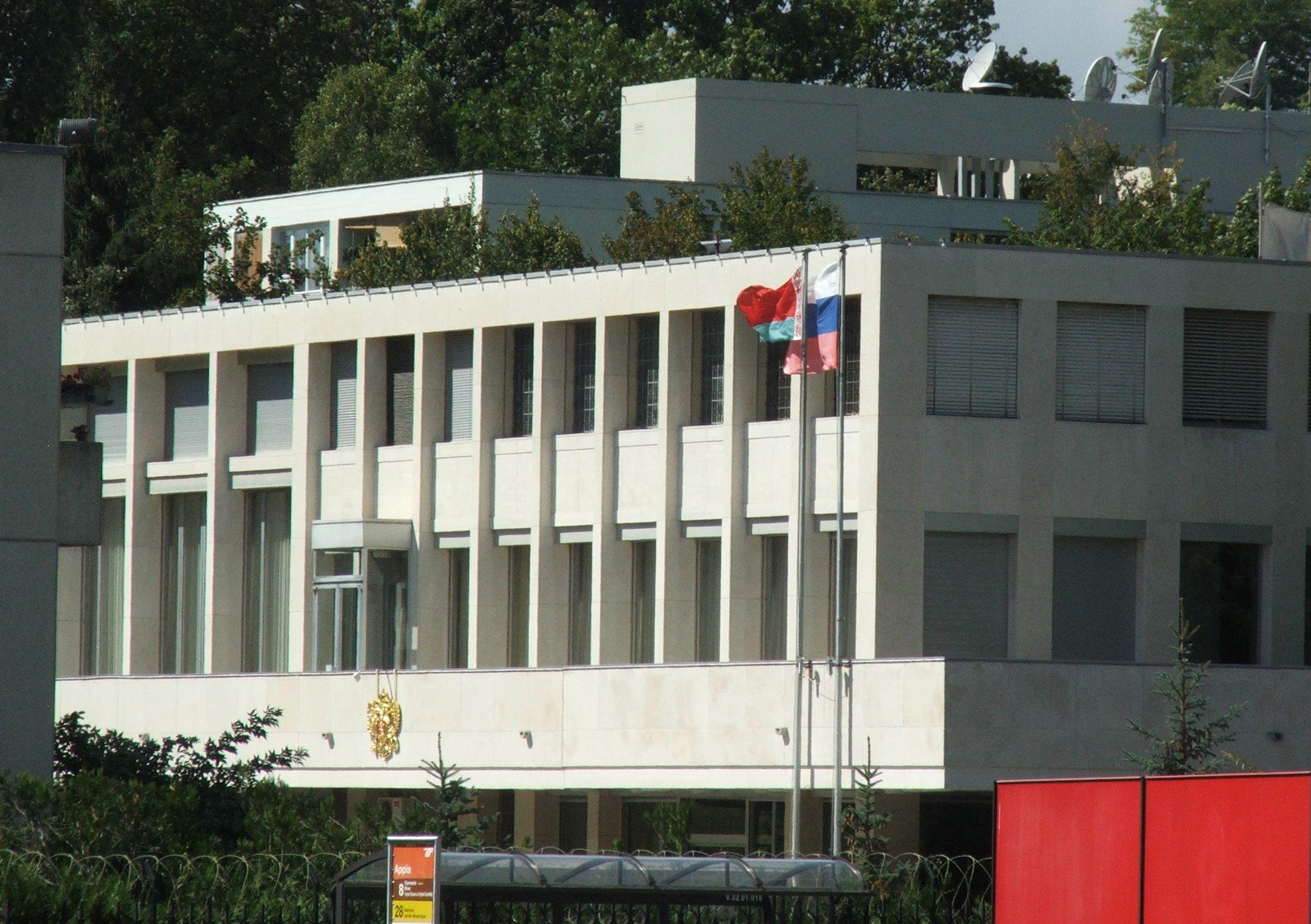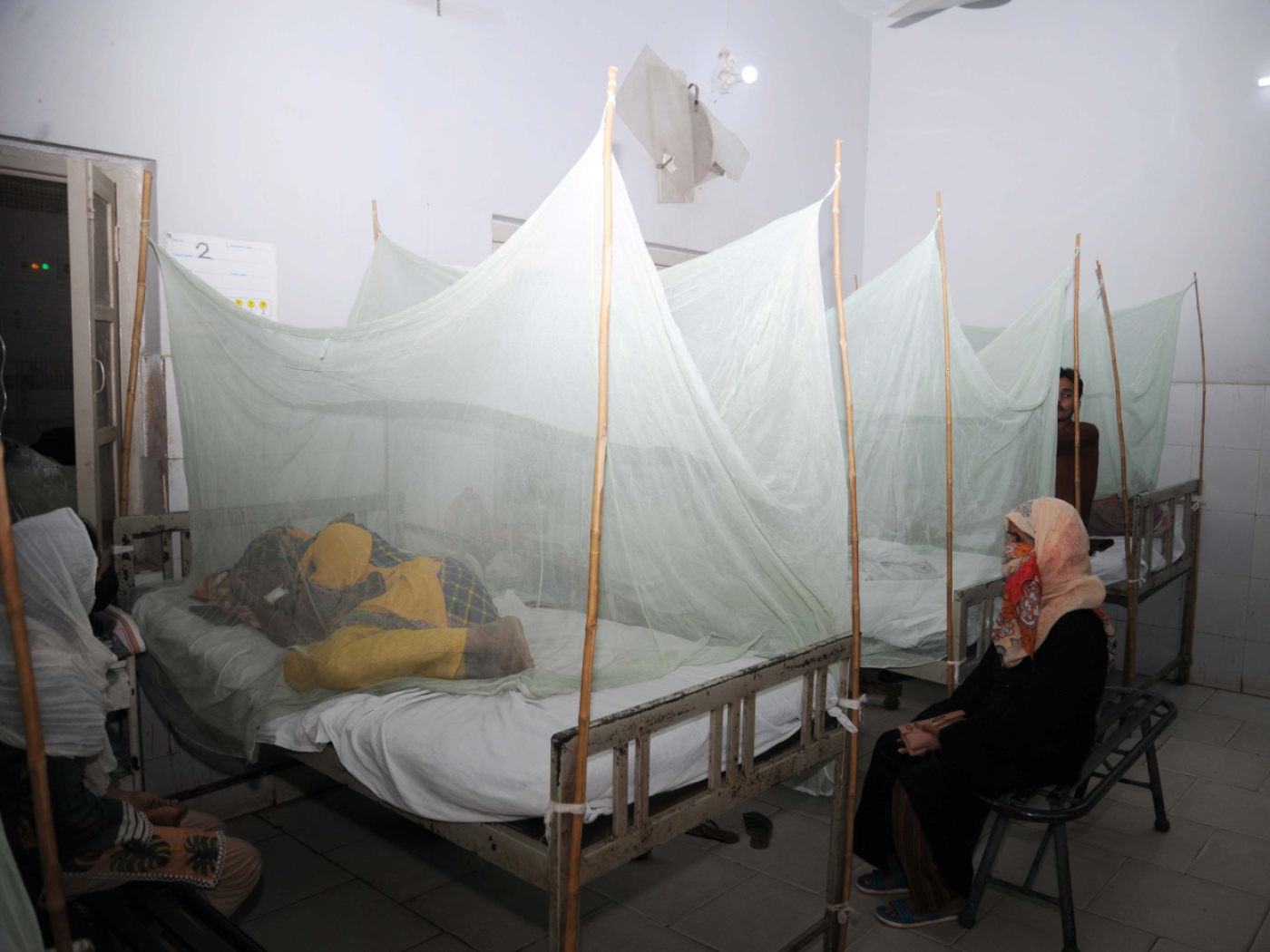Russian mission installs more ‘spy’ antennas in Geneva, Swiss TV report claims

Russian spies are strengthening their presence in Geneva, according to a report by Swiss public television, RTS. Russian officials have placed new satellite dishes on their diplomatic buildings without cantonal authorisation, it claims.
+Get the most important news from Switzerland in your inbox
The permanent mission of the Russian Federation to the United Nations in Geneva is located opposite the UN Palais des Nations building. Russia’s diplomatic complex is heavily protected with a high perimeter wall, surveillance cameras and armed guards.
The mission is officially diplomatic, but Russia has installed numerous spy antennas, listening devices and satellite dishes that are barely visible from the street, according to RTS.
+ Swiss prosecutors investigate suspected Russian spy
“These are clearly antennas used for espionage. There is no need for such a device for classic diplomatic messages. These antennas are used to spy on electronic communications, but also satellite communications,” historian Adrian Hänni, an expert on secret services at the University of Graz, told RTS.
Comparing current and archive images, RTS has established that these satellite dishes are mainly new devices.
Russia seems to be expanding its intelligence activity on Swiss territory, according to Hänni: “Russia has become much more offensive in terms of espionage in recent years. Switzerland is a hot spot, a rear base for Russian spies active throughout Europe.”
Antennas without authorisations
Canton Geneva’s Department of Territory confirmed to RTS that the Russian mission is a diplomatic structure that enjoys privileges, immunities and facilities in accordance with international law. That being said, cantonal rules remain valid in terms of building permits. Any satellite dish with a diameter greater than 90 cm is therefore subject to special authorisation. However, “the Russian mission has filed one request since 2006”, it confirmed.
+ Russia poses the biggest espionage threat in Switzerland
Satellite images reveal the construction of a legal antenna between 2006 and 2007, says RTS. However, another antenna was installed between 2006 and 2009, followed by one in 2012, then two additional antennas up to 2024. They all have a diameter of over 90 cm.
In total, there are four antennas built without cantonal authorisation on the roofs of Russian diplomatic buildings in Geneva, says RTS. The canton told the broadcaster that it had not been informed of any exception granted by the federal authorities and that these four antennas would therefore most likely be illegal.
‘Firmly disagrees’
The Russian embassy says it “firmly disagrees” and considers such statements as “a further attempt to arbitrarily demonise Russia and Russians”.
“We reaffirm our position that the diplomatic staff of our embassy is focused solely on the task of maintaining constructive cooperation with the authorities of the host country in the current difficult circumstances,” the Russian press service said.
In official reports, however, Switzerland’s Federal Intelligence Service (FIS) estimates that a third of Russian diplomats in Switzerland are spies, or a total of almost 80 individuals on Swiss territory.
In recent years, media reports have highlighted several cases in Switzerland involving Russian agents, such as cyber-espionage operations against the Swiss high-security laboratory in Spiez, canton Bern. According to the French newspaper Le Monde, Russian spies based between Geneva and Annecy, in France, also carried out sabotage actions and even assassination attempts in the UK and Eastern Europe.
This year, a “fake” Russian diplomat stationed in Bern was arrested while trying to obtain precision munitions and laboratory equipment capable of manufacturing chemical or biological weapons.
Swiss ‘not inactive’
Since the beginning of the war in Ukraine, European countries have taken various measures against Russian spies, including the expulsion of over 600 diplomats accused of espionage. In Switzerland, there has been no official announcement of the expulsion of diplomats or undercover spies.
+ Read more: Switzerland’s ‘hands-off’ approach to spies
“The Europeans have taken political measures, visible measures. At the FIS, we work more behind the scenes,” explained FIS director Christian Dussey in October.
“We are not inactive. On the contrary, we have stepped up our action, Switzerland is more aggressive in terms of counter-espionage,” he said.
However, the FIS is limited in its operations and must prioritise its commitments. In total, it has more than 420 employees, of which around 60 are dedicated to counter-espionage. And it takes around 10 to 15 agents to monitor the movement of a spy on Swiss territory.
In its 2024 report, the FIS stated: “Switzerland remains a prime location for spying and other intelligence activities. The fact that efforts to counter spying are less developed compared to other European countries plays a role.”
Translated from French by DeepL/sb
This news story has been written and carefully fact-checked by an external editorial team. At SWI swissinfo.ch we select the most relevant news for an international audience and use automatic translation tools such as DeepL to translate it into English. Providing you with automatically translated news gives us the time to write more in-depth articles.
If you want to know more about how we work, have a look here, if you want to learn more about how we use technology, click here, and if you have feedback on this news story please write to english@swissinfo.ch.

In compliance with the JTI standards
More: SWI swissinfo.ch certified by the Journalism Trust Initiative


















You can find an overview of ongoing debates with our journalists here . Please join us!
If you want to start a conversation about a topic raised in this article or want to report factual errors, email us at english@swissinfo.ch.